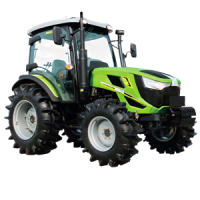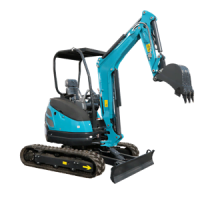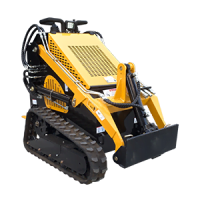rubber tracks for mini excavator are a great alternative to traditional metal tracks. They provide more traction for your machine and make it easier for you to work in rougher terrain or harsher environments, such as muddy construction sites where metal blades could get stuck, or on soft ground where metal tracks can’t grip. Find out the benefits and drawbacks of using mini excavators with rubber tracks and decide whether they are the best option for you!
What are rubber tracks for mini excavator?
If you’re in the market for a mini excavator, you may be wondering if rubber tracks are the way to go. Here’s a look at the pros and cons of mini excavators with rubber tracks:
PROS:
- Better traction. Rubber tracks provide better traction than steel tracks, which is ideal for working in slippery or uneven conditions.
- Less damage to surfaces. Because they have more give, rubber tracks cause less damage to surfaces like driveways and sidewalks.
- Quieter operation. Rubber-tracked mini excavators tend to run quieter than their steel-tracked counterparts.
CONS:
- More expensive. Rubber tracks generally cost more than steel tracks.
- More vulnerable to punctures and tears. Because they’re made of rubber, they’re more susceptible to punctures and tears than steel tracks.

How Do They Work?
Rubber tracks for mini excavator have a number of advantages and disadvantages that should be considered before making a purchase.
One of the main advantages of mini excavators with rubber tracks is their increased traction. This is due to the increased contact area between the rubber track and the ground, which results in less slippage and more efficient operation. In addition, these machines are generally easier on turf and sensitive surfaces than those with steel tracks.
However, there are some disadvantages to consider as well. One is that rubber tracks are more susceptible to damage from debris and sharp objects than steel tracks. In addition, they can also be damaged by excessive heat or cold, so they may not be ideal for use in all climates. Finally, rubber tracks for mini excavator typically cost more than those with steel tracks.
Conclusion
When it comes to mini excavators, there are pros and cons to both rubber track and steel track models. If you’re trying to decide which type of mini excavator is right for you, consider the terrain you’ll be working on as well as your budget. Rubber tracks for mini excavator are more expensive than steel tracked models, but they offer better stability and traction on soft or uneven surfaces. Steel tracked excavators are less expensive and better suited for use on hard, level ground. Ultimately, the decision of which type of mini excavator to buy depends on your specific needs and preferences.





-1.png)